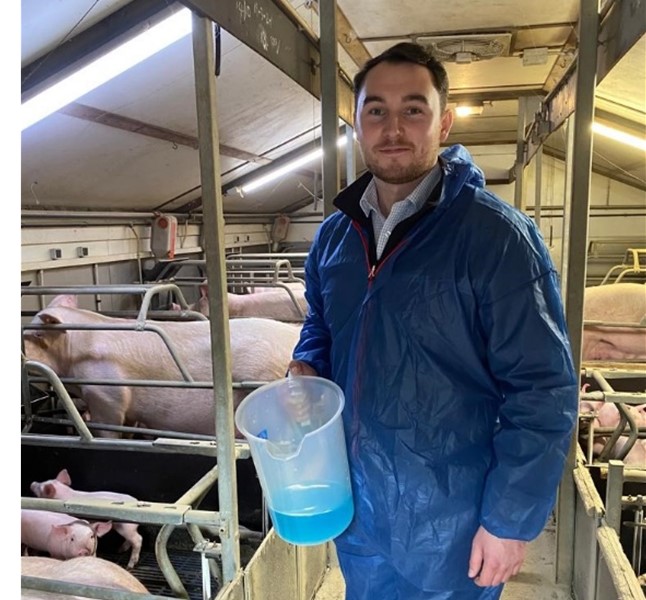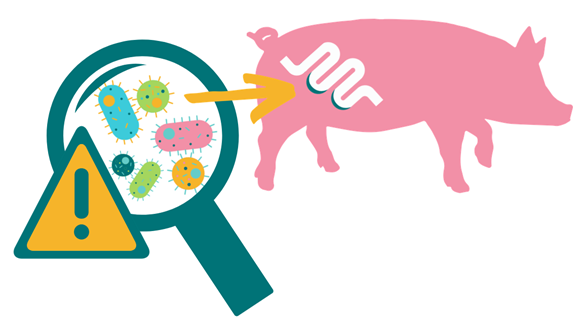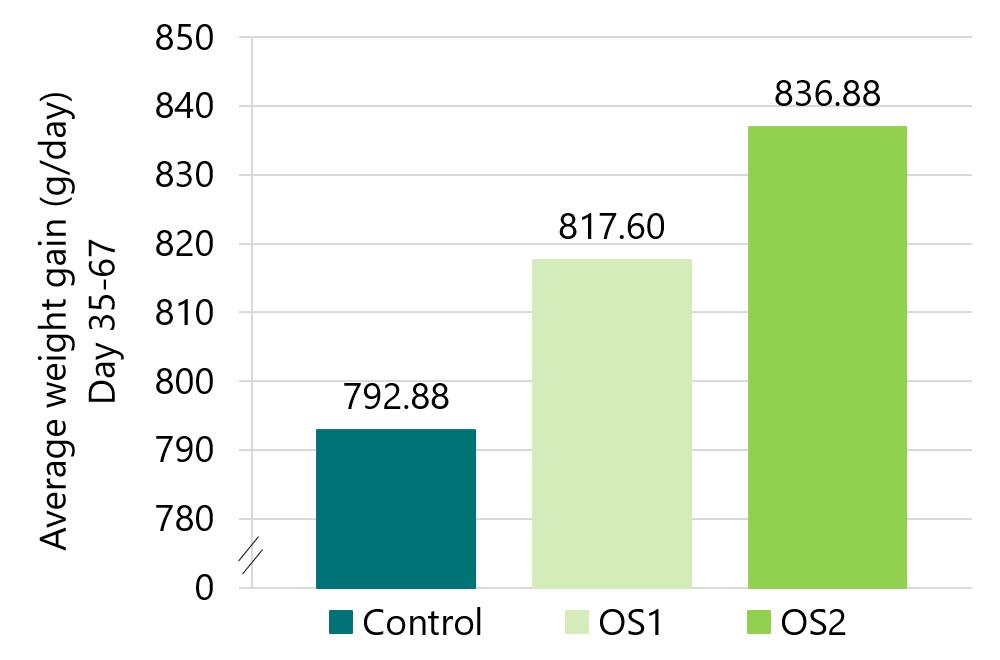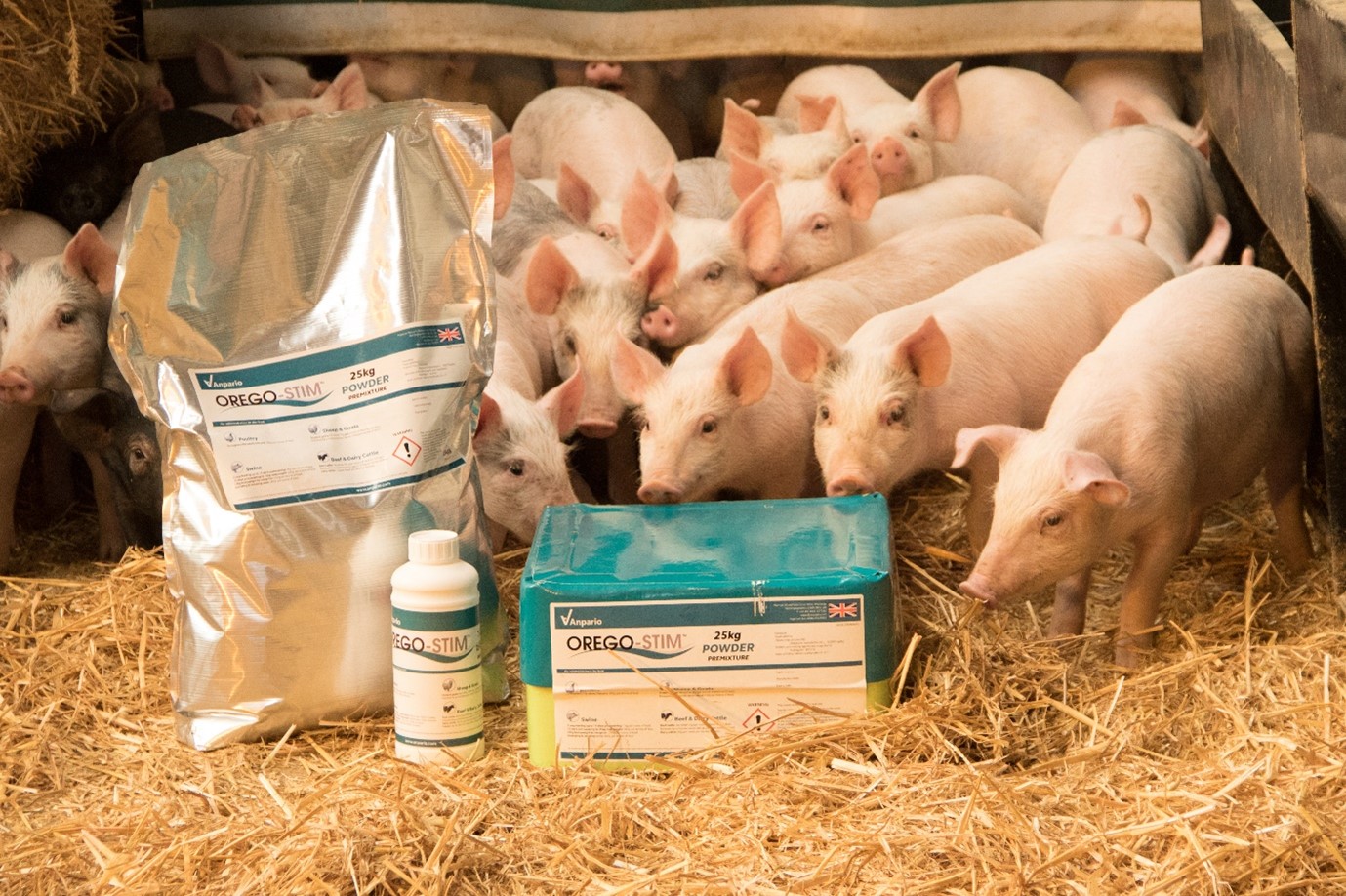Exploring the Challenges of Ileitis & Possible Natural Solutions
In this Q&A we explore the
challenges of ileitis and how natural solutions can help with Jack Fellows, Country Manager for UK and Ireland at Anpario
plc.
Jack works
alongside Anpario’s pig customers across the UK and Ireland.
Q1. What is ileitis?
Ileitis is caused by Lawsonia
intracellularis bacteria which infects the cells in the gut of pigs, preventing
proper cell function in the small intestine.
Q2. What are the symptoms of ileitis?

Symptoms associated with ileitis are similar to other enteric diseases (diseases that are caused by micro-organisms such as viruses, bacteria and parasites that cause intestinal illness) and vary depending on the severity of infection.
Ileitis has 3 typical presentations:
- Acute
- Chronic
- Subclinical

Q3. How common is ileitis?
Ileitis was recently estimated to be present on 95% of pig farms in the UK and Ireland, and to cause the UK pig industry economic losses of up to £4 million each year. Hence why producers all over the country are keen to explore their options to protect both their pigs & their profits.
Q4. What treatment options are
available for ileitis infection?
- Working alongside vets and nutritionists is crucial in implementing an
effective ileitis control programme to maintain optimum gut health.
If a case of ileitis is confirmed, it may be treated with antibiotics. However, there is no specific treatment for the most common subclinical cases, as these often go undetected by both farmers and vets, and hence cause producers financial losses if pigs aren’t performing well.
Q5.
Can I prevent ileitis?
- As with all bacterial enteric diseases, preventative measures are the
most effective means of minimising risk of infection in the herd.
The implementation of biosecurity protocols, including boot dipping, disinfection between batches, adequate drying of units post-disinfection and quarantining gilts before they join the herd, play an important role.
In addition, appropriate vaccination programmes can help to reduce the impact of the disease.
New research suggests that an optimised pig diet can lower the risk of ileitis by minimising the bacteria’s chance of survival in the gut and supporting the animal’s immune system. A more robust gut means the pig is better equipped to defend itself against bacterial challenges, including ileitis.
Q6.
Why are natural solutions appealing to farmers?
Pig farmers are being encouraged to take preventative steps to control the spread of ileitis within their herds, and as they strive towards reducing antibiotic use in their industry, effective natural solutions are becoming a popular choice.
Q7.
How can OEO help with
ileitis?
- The value of phytogenics
have been increasingly explored and researched as animal producers seeks more natural,
sustainable solutions to support pig health and performance.
Oregano essential oil (OEO) is one such natural solution, and has well-documented benefits when supplemented in pig diets, helping animals to achieve their genetic potential and support optimal lifetime performance in the absence of therapeutic antibiotics.
The beneficial properties of natural OEO are well-established and include anti-bacterial, antioxidant, anti-inflammatory and immunomodulatory functions. As a natural flavouring compound, OEO also helps increase voluntary feed intakes during periods of stress, keeping pigs well fed and maintaining performance.

Q8. What evidence is there to show OEO supports pigs
during ileitis challenge?
- A recent trial was undertaken to determine the efficacy of a 100%
natural source of OEO (Orego-Stim, Anpario) alongside vaccination in a herd
challenged with ileitis.
Supplementing vaccinated pigs with Orego-Stim at 1 kg/tonne of feed reduced the percentage of abnormal faeces and lowered the number of pigs with lesions compared to vaccination alone.
According to the results of the trial, pigs fed Orego-Stim supplemented diets were three times more likely to have no lesions and twice as likely to have normal faecal scores. In addition, Orego-Stim supplementation increased average daily gain by 5.5% compared to vaccination alone.
The natural OEO based feed additive provides a sustainable, low inclusion, cost effective tool to support commonly implemented vaccination programmes and optimise pig performance during ileitis challenge, helping to maintain profitability for global pig producers.



